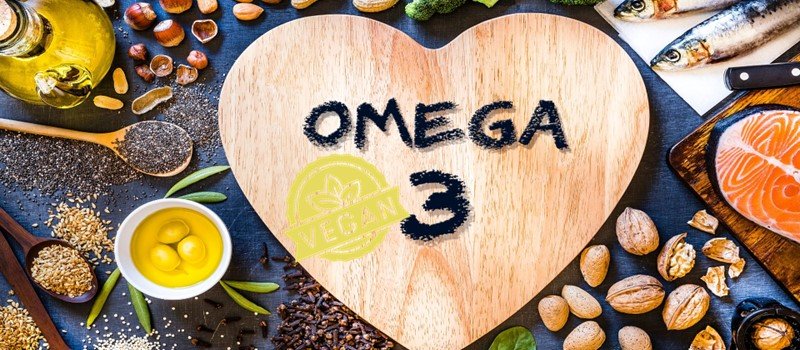Omega 3 fatty acids are a type of essential fatty acid that play a crucial role in human health. They have been shown to have a number of potential health benefits, including reducing inflammation, improving heart health, and aiding in brain function. However, vegans are often deficient in omega 3, as the primary sources of these fatty acids are animal-derived. In this article, we will explore the reasons why vegans are often deficient in omega 3 and discuss the best vegan sources of these essential fatty acids.
Let’s jump into three reasons why vegans are often deficient in omega 3. From her we will take you through the best natural vegan sources of omega 3 to ensure that your body is getting everything it needs.

Why Are Vegans Deficient in Omega 3?
One of the main reasons that vegans are often deficient in omega 3 is because the primary sources of these fatty acids are animal-derived.
Omega 3 fatty acids can be found in foods such as fish, eggs, and dairy products, which are all excluded from a vegan diet.
As a result, vegans must rely on plant-based sources of omega 3, which are not as well-absorbed by the body.
Best Vegan Sources of Omega 3
While it can be more challenging for vegans to get enough omega 3, it is still possible to meet your needs through a well-planned vegan diet. Here are some of the best vegan sources of omega 3:
- Flaxseeds: Flaxseeds are an excellent source of omega 3 fatty acids, specifically alpha-linolenic acid (ALA). They can be easily added to a variety of dishes, such as smoothies, oatmeal, and baked goods.
- Chia seeds: Chia seeds are another excellent source of ALA. They can be easily added to a variety of dishes, such as smoothies, yogurt, and oatmeal.
- Walnuts: Walnuts are a good source of ALA and can be easily added to a variety of dishes, such as salads, oatmeal, and baked goods.
- Edamame: Edamame, which are immature soybeans, are a good source of omega 3 fatty acids, specifically ALA and stearidonic acid (SDA). They can be eaten as a snack or added to a variety of dishes, such as stir-fries and salads.
- Tofu: Tofu, which is made from soybeans, is a good source of omega 3 fatty acids, specifically SDA. It can be easily added to a variety of dishes, such as stir-fries, soups, and salads.
- Seaweed: Seaweed, such as nori, kelp, and dulse, is a good source of EPA and DHA, which are the most biologically active forms of omega 3 fatty acids. It can be easily added to a variety of dishes, such as sushi, soups, and salads.
Vegan Omega-3 Supplements
If you are unable to meet your omega 3 needs through diet alone, you may want to consider taking a vegan omega 3 supplement.
These supplements are made from algae and are a good source of EPA and DHA. However, it’s important to note that supplements are not a replacement for a well-planned vegan diet and should be used with caution.
It’s always a good idea to consult with a healthcare professional before starting any new supplement regimen.
For more on health benefits of a vegan diet, check out this article.
Conclusion: Vegan Omega 3 Deficiencies & Best Sources
Vegans are often deficient in omega 3 fatty acids due to the exclusion of animal-derived foods in their diet and the lower prevalence of these fatty acids in plant-based foods. However, it is still possible for vegans to meet their omega 3 needs through a well-planned diet and, if necessary, supplementation. Some of the best vegan sources of omega 3 include flaxseeds, chia seeds, walnuts, edamame, tofu, and seaweed. If you are unable to meet your omega 3 needs through diet alone, it may be a good idea to consider taking a vegan omega 3 supplement. However, it’s always a good idea to consult with a healthcare professional before starting any new supplement regimen.



